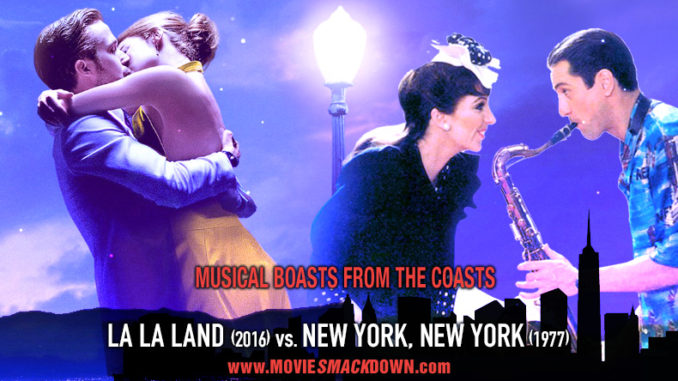
The Smackdown
Classic Smackdown alert! L.A. vs. New York! East Coast vs. West Coast! Cars vs. Subways! Dark romantic hit ’10s musical vs. Dark romantic flop ’70s musical! Studly De Niro vs. heartthrob Gosling! Winsome Stone vs. irrepressible Minnelli!
And how about that repetition within each city-centric title? Coincidence? We think not. It’s obvious the Smack gods were smiling on us for this one. Probably tapping their feet too.
Yes, folks, what we have here is no less than the most contentious battle since Black Spy first set his cunning sights on White Spy, and vice versa. So hold onto your hats and get your dancing shoes on. It’s showtime!
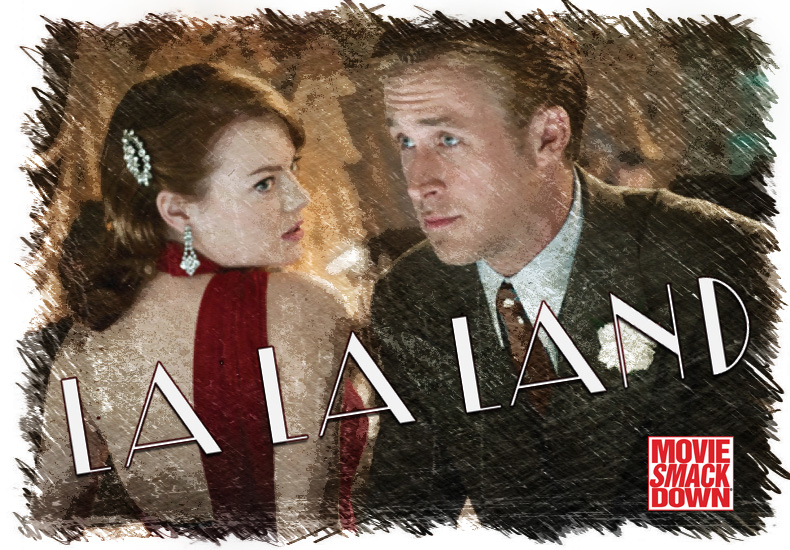 The Challenger
The Challenger
Damien Chazelle’s La La Land accurately envisions its title city as one crammed with ambitious young wannabe performers who have come to Hollywood from around the globe to chase their dreams of stage and screen stardom. One such dreamer is Mia (Emma Stone), a struggling actress working in the studio coffee shop and getting increasingly disillusioned by the brutal realities of the audition process. Her dismal life is finally brightened, after some unpromising meet-cutes, by an unlikely romance with Sebastian (Ryan Gosling), a surly-but-charming jazz pianist who dreams of opening his own club but is hampered by his stubborn rejection of all things musically commercial and popular.
Gradually, they drift apart as their goals take them in different directions. He joins a band led by his friend Keith (John Legend) that represents everything he hates and takes him on the road for long stretches but provides financial stability. She devotes herself, at his prodding, to an autobiographical one-woman show.
The story is fairly traditional, but the stylized visuals and occasional spots where characters spontaneously burst into song and dance (or in Gosling’s case, “song†and “danceâ€) bring to mind classic MGM musicals, beloved Jacques Demy flicks like The Umbrellas of Cherbourg, and everything in between, including —
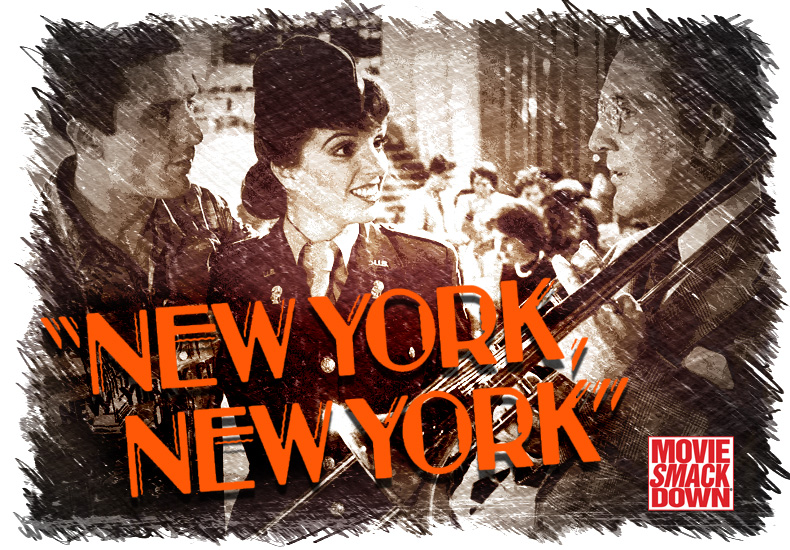 The Defending Champion
The Defending Champion
The boisterous opening sequence of Martin Scorsese’s New York, New York (1977) finds the arrogant, relentlessly pushy Jimmy Doyle (Robert De Niro) at a swinging, dance-filled V-J Day party in the title city, desperately trying his stale pick-up lines on every woman in sight and finally facing a rejection from sassy USO singer Francine Evans (Liza Minelli) that he simply refuses to digest.
Fate bonds them together over the course of the night and into the next day, eventually leading to Jimmy’s audition for a local nightclub, where he reveals himself as a crazy talented saxophonist. What’s more, his chemistry with Francine on vocals is off the charts and lands them both the gig.
A turbulent romance and marriage ensue, and their stars continue rising, hers as a singer/actress, his as a composer/bandleader. But Jimmy’s volatile temper, infidelity, and all-around dickishness prevent them from finding much joy. Not even a fantastic, nearly non-stop soundtrack of jazz standards and two instant-classic Kander/Ebb songs manages to cheer them up for much of the film’s 163-minute (!) running time.
The Scorecard
New York, New York was a major box office flop in its day, breaking a long winning streak for its legendary director (quite possibly due to his being coked to the gills for much of its shooting and to the openly adulterous affair he and Minnelli carried on together). This makes it a singularly odd choice for La La Land to extensively imitate.
But a side-by-side comparison makes the similarities impossible to overlook: Both begin with a lavish opening sequence that has the paths of the two leads cross and gets them off to an inauspicious start, leading to flirtatious banter and eventual romance. Granted, both films owe a rather staggering debt to such classic forerunners as A Star Is Born, but still.
In these two, the male half of the couple is an aspiring jazz musician/composer, and the female is a struggling performer. Both couples are threatened by their differing agendas and career priorities. Both female leads reach a career-boosting turning point with a big, dramatic (and show-stopping) number in a studio, and both male leads are hindered by being temperamental, stubborn, self-absorbed, and money-focused. And eventually (SPOILER ALERT), neither couple can withstand all the internal and external pressures, resulting in their breaking up and moving on with their lives (her raising a child, him going it alone), only to enjoy a brief, bittersweet reunion just before the credits roll.
While their plots and themes share more than a passing resemblance, how the two films approach their material couldn’t be more different. Chazelle’s style is one of imitation and nostalgia, more than happy to remind us of his various inspirations and play with them like a kid in a toy store, whereas Scorsese is more like a mad scientist, attempting to create some new, unholy hybrid of the classic movie musical and his own gritty, brooding, naturalistic (and frequently improvisational) sensibilities. The result, in Scorsese’s case, is a laudably ambitious experiment that contains some wonderful notes and passages but never quite comes together as a successful composition.
The fault lies mainly with De Niro’s character, an all but irredeemable creep who would have been right at home in Taxi Driver (a far better Scorsese-De Niro collaboration, that came immediately prior to this one), but here, we are simply at a loss as to any reason to like or care about him. We can’t imagine a sweetheart like Francine possibly falling for him that hard, and we have no rooting interest in their staying together or in his career taking off; if anything, we want him out of the picture so we can have her all to ourselves… and indeed, we pretty much get our wish toward the end, but it’s too little and WAY too late.
Meanwhile, on the opposite coast, Gosling’s Sebastian is no prince either, but he’s sweet, soulful and genuinely talented, enough to get us rooting for both his career ambitions to pan out and for him to wind up with Mia, whom Stone characteristically renders as irresistible. The two leads (both Oscar-nominated) have a wonderful rapport that makes for a delightful, witty and breezy first half. The script falters in the latter stages (though the critical accusations of racism and whitesplaining go overboard), when Sebastian starts making decisions that don’t seem motivated or clear, causing the subsequent events to feel contrived and hollow. But much of the movie hums along quite enjoyably thanks to its two charming leads, Chazelle’s fluid and confident direction, and the gorgeous technical achievements, pretty much all of which nabbed Oscar noms as well.
The one area where NY, NY comes out the clear winner, however, is a pretty major one for a musical: the music. As is par for the course for Scorsese, the soundtrack is overflowing with classic tunes, as performed by Minnelli and De Niro (yes, the ultimate Method Actor that he is, he actually learned to play), together and apart, and some outstanding back-up bands. And in the final half-hour, we’re treated to two of the great movie-musical performances of the entire genre: Minnelli’s rousing renditions of both the title tune (which, I don’t care how many millions of times you’ve heard it, still packs a wallop here), and the less-celebrated but equally powerful “But the World Goes Round.†The Justin Hurwitz songs in La La are serviceable and occasionally very good (the glitzy opening number and Stone’s climactic solo are standouts) but not particularly memorable, and they simply can’t compare with Scorsese’s knack for assembling an indelible collection of songs, or the magnificent Minnelli’s delivery of them.
The Decision
So how to score it? New York, New York remains an intriguing and occasionally brilliant curiosity, but its extreme length and rather hateful protagonist make it a bit of a slog. On the one hand, if you believe you can’t have a great musical without great music, you’ll agree that it takes the “Soundtrack Smackdown” undercard by an easy TKO. On the other, start spreading the news, because for the main bout, I go with the sympathetic characters, laughs, likability and rooting interest of the winner La La Land, a phrase I suspect we’ll be hearing repeatedly this coming Sunday.

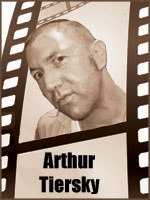
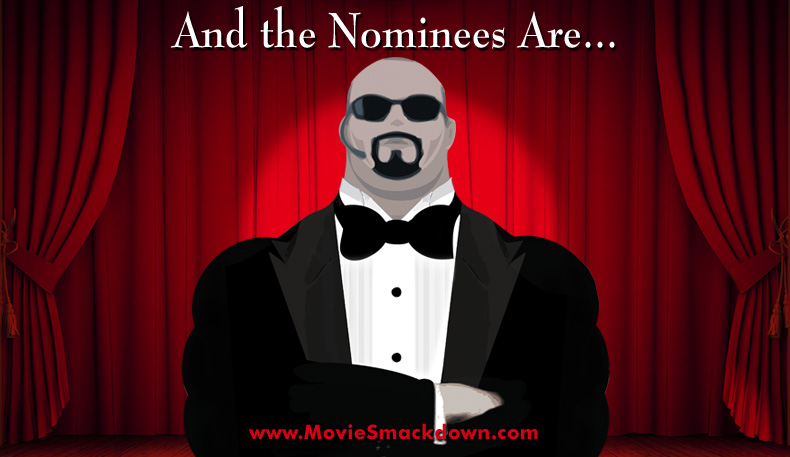
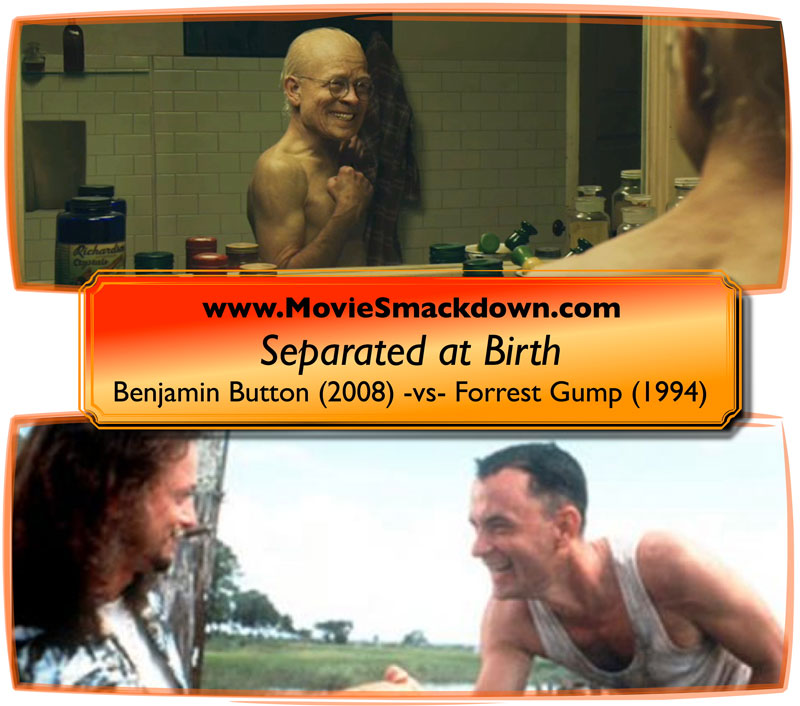
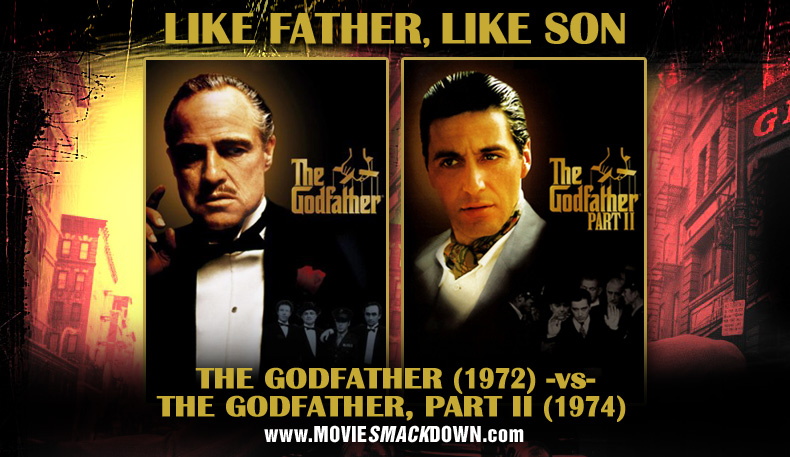
Leave a Reply